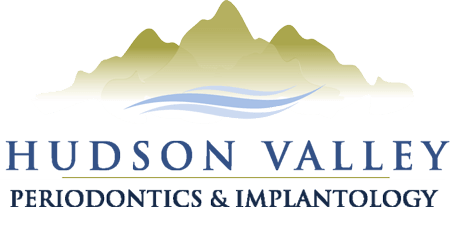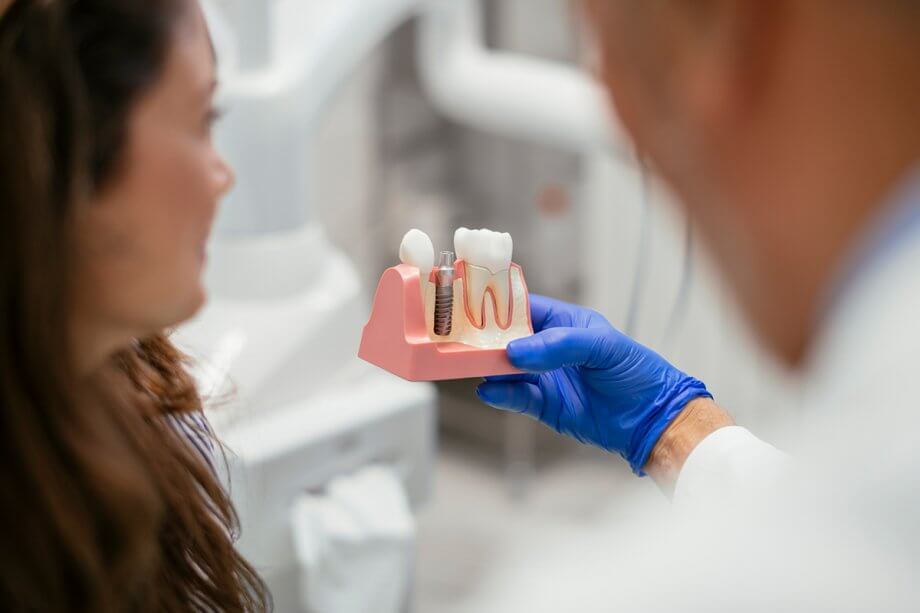Are you planning to get dental implants? Or perhaps you’re still deciding if implants are the best tooth replacement option for you. An important factor to consider is recovery and what you can expect in terms of discomfort following dental implant placement. Your experience may vary based on a variety of factors, but this overview can give you a general idea.
What Are Dental Implants?
Dental implants are artificial tooth roots that are surgically placed in the jaw, directly in the bone. The implant fuses with the bone, forming a solid bond that acts as an anchor for a dental prosthetic, such as a crown, bridge, or dentures. A single dental implant can provide an anchor for one artificial tooth (crown). Two dental implants can support a bridge to replace a few teeth in a row. To replace all of the teeth in either the upper or lower arch, 4-6 dental implants can support a full arch denture.
The Dental Implant Placement Procedure
Dental implant placement is a minor oral surgery. It requires some displacement of tissues to make space for the implant. The gum tissue is opened, the jaw bone is prepared, and the implant is carefully placed in the socket. A few stitches are used to close the gum tissue over the implant while it heals and integrates with the bone.
Average Recovery Time
The average recovery time after dental implant placement is 1-2 weeks. This refers to the time it takes for the tissues to heal at the site of the implant. The process of fusion with the bone can take anywhere from 3-6 months.
Factors That Affect Recovery Time
- Number of implants. The total number of dental implants you receive may affect your recovery time. More implants affect a larger area, meaning the overall impact is greater.
- Follow up care. By carefully following your dentist’s instructions after surgery you can shorten your recovery time and avoid setbacks.
- Age. Your age can affect recovery time. Younger patients are likely to recover more quickly than older patients.
- Diet. What you eat after your dental implant procedure can affect your recovery. Eating nutritious foods that your dentist recommends, especially foods high in protein, can accelerate recovery.
- Smoking. Avoiding smoking is in the best interest of your recovery. Smoking can restrict circulation to the tissues, hindering the healing process.
Managing Discomfort
If you experience discomfort following your dental implant placement procedure, you can take over the counter pain medication. For more severe pain that does not respond to over the counter medication, your dentist can prescribe a stronger pain reliever.
In addition to medication you can apply ice to the affected area to reduce inflammation and swelling. Rinsing with salt water can accelerate healing by reducing bacteria and increasing blood flow to the area.
Frequently Asked Questions About Dental Implant Recovery
When will I start to feel discomfort after the dental implant procedure?
Once the local anesthesia wears off and you are no longer numb, you may start to feel some discomfort. It helps to take a pain reliever before the anesthesia wears off so that it can start to take effect.
What can I eat after dental implant placement?
You will need to eat soft foods for the first few days following your procedure, such as yogurt, applesauce, pudding, jello, cottage cheese, and mashed potatoes. Then you can gradually start eating more solid foods according to your level of comfort.
Contact Hudson Valley Periodontics & Implantology
If you’re interested in dental implants or have questions about recovery, call 845-623-6666 or contact us today to learn more and schedule an appointment.

